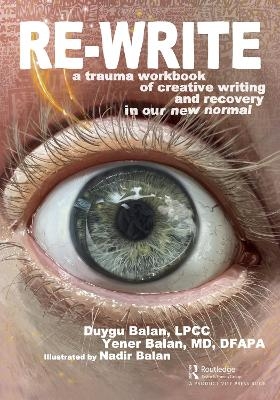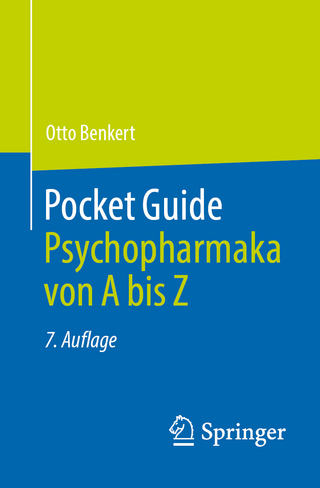
Re-Write
Productivity Press (Verlag)
978-1-032-34780-6 (ISBN)
Attachment theory-based treatments including depth psychology, somatic psychology, holistic therapy, and Eye Movement Desensitization and Reprocessing (EMDR) are becoming even more popular and desired by clinicians, health systems, and the patients they care for. Up until recently, cognitive behavioral therapy and medication management were the mainstays for trauma-informed care, although we are witnessing a demand for a more somatic, holistic, and, therefore, deeper level of treatment to target attachment injury and change/re-write the trauma narrative. This book provides the response and tools to meet this current need.
Due to the pandemic, lockdowns, and significant changes in our stability, the economy, sense of belonging, and community, there is a heightened level of triggering which has resulted in multifactorial trauma responses. The devastating traumatic impact spans nations, ages, and socioeconomic statuses. Unfortunately, domestic violence, child abuse, substance use, medical trauma, self-injury, suicide, and violence turned outwards have all increased significantly in the past two years.
This workbook focuses on the healing journey of the trauma survivor, utilizing easy-to-use methodologies for long-lasting effects. It includes various exercises, writing prompts, coping mechanisms, and soothing techniques with the intention of allowing the person to create an individualized experience. This empowers the person to go in the order they choose, experiment with different techniques from different modalities, and find the ones that meet their needs the best. The authors also address generational trauma, societal trauma, and trauma at the family and individual levels, and their work can be used in conjunction with a clinical treatment plan or by the end user.
Re-Write: A Trauma Workbook of Creative Writing and Recovery in Our New Normal employs practical strategies using evidence-based methodologies with psychological theory within a human-centered design framework.
Duygu Balan, LPCC, LMHC, MS Ed, CCTP is a psychotherapist and certified trauma professional, and for over a decade has cared for individuals and couples dealing with childhood trauma, attachment injuries and grief. Duygu has extensive background in writing, studied at the Gotham Writers Workshop and Nina LaCour’s The Slow Novel Lab and has recently contributed a chapter for the bestselling medical textbook Big Book of Emergency Department Psychiatry, CRC Press 2018. Yener Balan, MD, DFAPA is a board-certified psychiatrist and is currently the Vice President of Behavioral Health and Specialty Services for Kaiser Permanente, Northern California. He provides health plan oversight and direction to the NCAL Behavioral Health Program and Specialty Services as they develop an integrated model of 21st century health care – investing in technology, people and research to drive market leading performance; engaging members and families in quality improvement efforts; implementing processes that focus on proactive intervention and prevention; and engaging with organizations in the community to help shape the growth, education, and training of the behavioral health and specialty services workforce. Yener received his medical degree from Albany Medical College and completed his residency at Albert Einstein College of Medicine. He has been recognized as a distinguished fellow of the American Psychiatric Association. Yener is a graduate of the KP Executive Leadership Program. He also serves on the board of directors for Health Right 360, has extensive years of experience working in high volume community emergency departments, is an expert on hospital operations, and has given lectures and workshops worldwide. He is the bestselling author of the Big Book of Emergency Department Psychiatry: A Guide to Patient Centered Operational Improvement, CRC Press 2018.
Testimonials. Acknowledgments. Foreword. Authors. Illustrator. Introduction. Part 1 OUR HEALING JOURNEY BEGINS. 1 Intro and Current State. 2 Identifying and Treating Trauma. Part 2 TOOLS FOR OUR SUCCESS. 3 Value of Treatment. 4 Balan 3-2-1 Method. Part 3 DOOR TO OUR MIND. 5 Language of Mind and Body. 6 Brain–Body Connection. Part 4 WINDOW TO OUR SOUL. 7 Family, Children, and Resilience. 8 Culture, Identity, and Society. 9 Gaslighting and Other Betrayal Traumas. 10 COVID, Disasters, and Loss. Part 5 RESOURCES FOR OUR FUTURE. 11 Safety Planning. 12 Long Haul to a New Normal, Our Path Forward. Appendix. Bibliography. Index.
| Erscheinungsdatum | 27.03.2023 |
|---|---|
| Zusatzinfo | 14 Line drawings, black and white; 14 Illustrations, black and white |
| Verlagsort | London |
| Sprache | englisch |
| Maße | 178 x 254 mm |
| Gewicht | 453 g |
| Themenwelt | Geisteswissenschaften ► Psychologie ► Klinische Psychologie |
| Medizin / Pharmazie ► Physiotherapie / Ergotherapie ► Ergotherapie | |
| Sozialwissenschaften ► Pädagogik ► Sozialpädagogik | |
| Sozialwissenschaften ► Soziologie | |
| Wirtschaft ► Betriebswirtschaft / Management ► Planung / Organisation | |
| Wirtschaft ► Volkswirtschaftslehre | |
| ISBN-10 | 1-032-34780-5 / 1032347805 |
| ISBN-13 | 978-1-032-34780-6 / 9781032347806 |
| Zustand | Neuware |
| Informationen gemäß Produktsicherheitsverordnung (GPSR) | |
| Haben Sie eine Frage zum Produkt? |
aus dem Bereich


